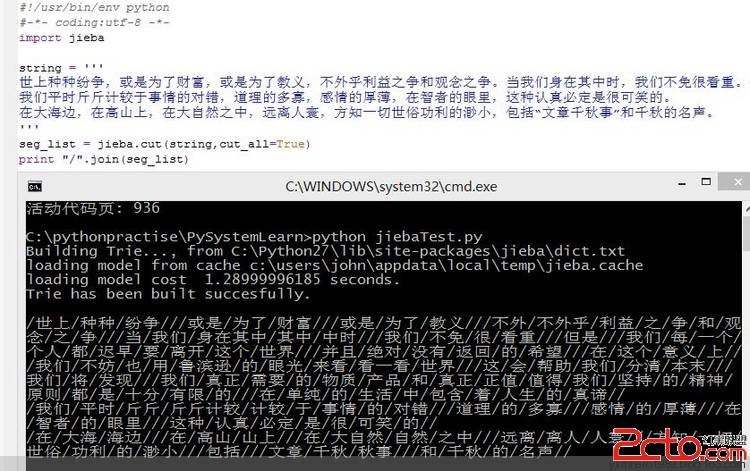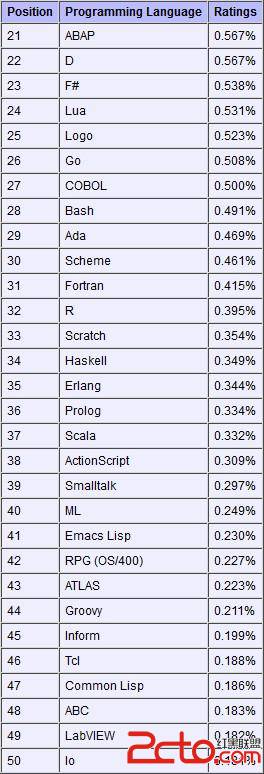信息安全——ELGamal数字签名方案的实现
ELGamal数字签名方案的实现
1. 问题描述
为简化问题,我们取p=19,g=2,私钥x=9,则公钥y=29 mod 19=18。消息m的ELGamal签名为(r,s),其中r=gk mod p,s=(h(m)-xr)k-1 mod (p-1)
2.基本要求
考虑p取大素数的情况。
3. 实现提示
① 模n求逆a-1modn运算。
② 模n的大数幂乘运算
由于大素数的本原元要求得很费事,所以签名所需要的数值我已经事先给出,当然这些数值比较小,有兴趣的同学可以自行将数值变大.
ELGamal离不开大数包的支持!
BigInteger.h
[cpp]
#pragma once
#include <cstring>
#include <string>
#include <algorithm>
#include <assert.h>
#include <ctime>
#include <iostream>
using namespace std;
const int maxLength = 512;
const int primeLength = 30;
const int primesBelow2000[303] = {
2, 3, 5, 7, 11, 13, 17, 19, 23, 29, 31, 37, 41, 43, 47, 53, 59, 61, 67, 71, 73, 79, 83, 89, 97,
101, 103, 107, 109, 113, 127, 131, 137, 139, 149, 151, 157, 163, 167, 173, 179, 181, 191, 193, 197, 199,
211, 223, 227, 229, 233, 239, 241, 251, 257, 263, 269, 271, 277, 281, 283, 293,
307, 311, 313, 317, 331, 337, 347, 349, 353, 359, 367, 373, 379, 383, 389, 397,
401, 409, 419, 421, 431, 433, 439, 443, 449, 457, 461, 463, 467, 479, 487, 491, 499,
503, 509, 521, 523, 541, 547, 557, 563, 569, 571, 577, 587, 593, 599,
601, 607, 613, 617, 619, 631, 641, 643, 647, 653, 659, 661, 673, 677, 683, 691,
701, 709, 719, 727, 733, 739, 743, 751, 757, 761, 769, 773, 787, 797,
809, 811, 821, 823, 827, 829, 839, 853, 857, 859, 863, 877, 881, 883, 887,
907, 911, 919, 929, 937, 941, 947, 953, 967, 971, 977, 983, 991, 997,
1009, 1013, 1019, 1021, 1031, 1033, 1039, 1049, 1051, 1061, 1063, 1069, 1087, 1091, 1093, 1097,
1103, 1109, 1117, 1123, 1129, 1151, 1153, 1163, 1171, 1181, 1187, 1193,
1201, 1213, 1217, 1223, 1229, 1231, 1237, 1249, 1259, 1277, 1279, 1283, 1289, 1291, 1297,
1301, 1303, 1307, 1319, 1321, 1327, 1361, 1367, 1373, 1381, 1399,
1409, 1423, 1427, 1429, 1433, 1439, 1447, 1451, 1453, 1459, 1471, 1481, 1483, 1487, 1489, 1493, 1499,
1511, 1523, 1531, 1543, 1549, 1553, 1559, 1567, 1571, 1579, 1583, 1597,
1601, 1607, 1609, 1613, 1619, 1621, 1627, 1637, 1657, 1663, 1667, 1669, 1693, 1697, 1699,
1709, 1721, 1723, 1733, 1741, 1747, 1753, 1759, 1777, 1783, 1787, 1789,
1801, 1811, 1823, 1831, 1847, 1861, 1867, 1871, 1873, 1877, 1879, 1889,
1901, 1907, 1913, 1931, 1933, 1949, 1951, 1973, 1979, 1987, 1993, 1997, 1999 };
class BigInteger
{
typedef unsigned char byte;
public:
BigInteger(void);
BigInteger(__int64 value);
BigInteger(unsigned __int64 value);
BigInteger(const BigInteger &bi);
BigInteger(string value, int radix);
BigInteger(byte inData[], int inLen);
BigInteger(unsigned int inData[], int inLen);
BigInteger operator -();
BigInteger operator =(const BigInteger &bi2);
BigInteger operator +(BigInteger &bi2);
BigInteger operator -(BigInteger bi2);
BigInteger operator /(BigInteger bi2);
BigInteger operator *(BigInteger bi2);
void singleByteDivide(BigInteger &bi1, BigInteger &bi2, BigInteger &outQuotient, BigInteger &outRemainder);
void multiByteDivide(BigInteger &bi1, BigInteger &bi2, BigInteger &outQuotient, BigInteger &outRemainder);
BigInteger operator %(BigInteger bi2);
BigInteger operator +=(BigInteger bi2);
BigInteger operator -=(BigInteger bi2);
int bitCount();
BigInteger modPow(BigInteger exp, BigInteger n);
friend ostream& operator<<(ostream& output, BigInteger &bi1);
friend BigInteger GetPrime();
friend bool Miller_Robin(BigInteger &bi1);
friend BigInteger MultipInverse(BigInteger &bi1, BigInteger &n);
friend BigInteger extended_euclidean(BigInteger n, BigInteger m, BigInteger &x, BigInteger &y);
friend BigInteger MultipInverse(BigInteger &bi1, BigInteger &n); //求乘法逆
friend BigInteger Gcd(BigInteger &bi1, BigInteger &bi2); //求最大公约数
friend bool IsPrime (BigInteger &obj);
BigInteger BarrettReduction(BigInteger x, BigInteger n, BigInteger constant);
bool operator >=(BigInteger bi2)
{
return ((*this) == bi2 || (*this) > bi2);
}
bool operator >(BigInteger bi2);
bool operator ==(BigInteger bi2);
bool operator !=(BigInteger bi2);
int shiftRight(unsigned int buffer[], int bufLen, int shiftVal);
BigInteger operator <<(int shiftVal);
int shiftLeft(unsigned int buffer[], int bufLen, int shiftVal);
bool operator <(BigInteger bi2);
string DecToHex(unsigned int value, string format);
string ToHexString();
public:
~BigInteger(void);
public:
int dataLength;
// number of actual chars used
unsigned int *data;
};
#pragma once
#include <cstring>
#include <string>
#include <algorithm>
#include <assert.h>
#include <ctime>
#include <iostream>
using namespace std;
const int maxLength = 512;
const int primeLength = 30;
const int primesBelow2000[303] = {
2, 3, 5, 7, 11, 13, 17, 19, 23, 29, 31, 37, 41, 43, 47, 53, 59, 61, 67, 71, 73, 79, 83, 89, 97,
101, 103, 107, 109, 113, 127, 131, 137, 139, 149, 151, 157, 163, 167, 173, 179, 181, 191, 193
补充:综合编程 , 安全编程 ,




